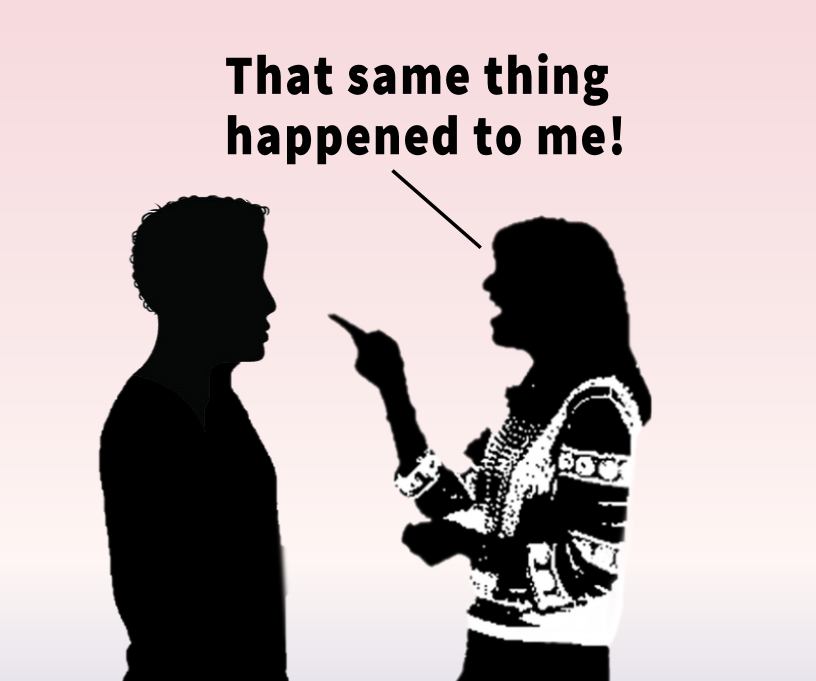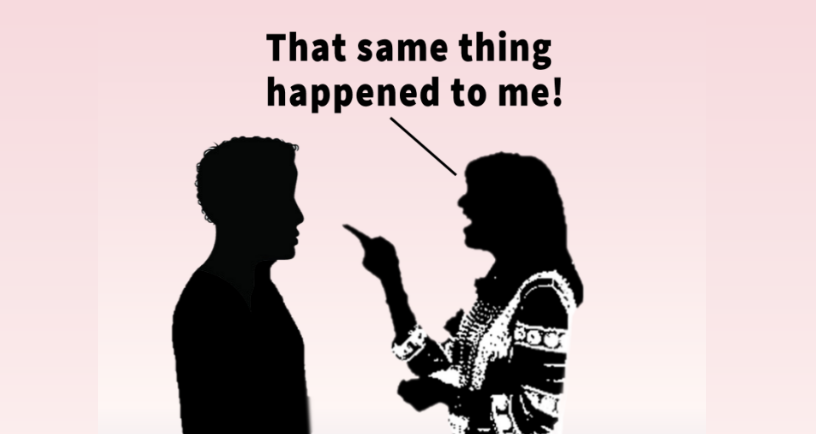Current e-Journal
- January 28,2019

January 28, 2019

How can you change a habit when you don’t even realize you do it?
Communication Habits We Don’t Realize We Have
We all have habits – patterns we follow so often they become second nature. The way we brush our teeth. The route we drive to work. Or the way we hang the toilet paper roll (always over, absolutely ).
Often we do not realize we do things in a particular way until someone points it out to us. And that is often particularly the case with communication habits. Those habits might be phrases we use over and over, or patterns of speech. Sometimes those habits are behaviors we take on when we are in conversation with others.
For some people, those habits include deep listening, holding space, making eye contact. Unfortunately, for others, those habits might include…
- Interrupting
- One-upping with your own story when someone is sharing theirs
- Talking just to fill the silence
- Thinking you know what someone is going to say
You may not realize you do those things (Do I really do that?). If you are aware you do it, you may not realize how often you do so. It is also likely you have no idea how it makes the other person feel (although you are probably aware of how you feel when someone does it to you!).
Try this:
This week, focus on noticing your communications habits. Try doing this for one whole day. Then see what happens when you do it for a whole week.
NOTICE how often you:
- Interrupt someone while they are talking, for whatever reason.
- Finish someone else’s sentence with what you think they’re going to say.
- Tell your own story: “That same thing happened to me…”
- Talk because you are uncomfortable with the pause or silence.
You may find it helpful to write that list on a sheet of paper in the morning. Then look at that paper throughout the day, perhaps after a conversation with a colleague or your child or spouse. And then again at night, quietly review your day of conversation. How often did those behaviors pop up?
Importantly, also notice how often someone acts that way with YOU! What does it feel like when a colleague interrupts or finishes your thoughts? What does it feel like when you are sharing something with a friend, and they launch into their own story about their experience?
Noticing is a powerful step in changing habits, especially when you notice how you feel when others behave that same way with you. That is one of the many reasons why noticing is a big part of the practice of Catalytic Listening, and Catalytic Thinking overall.
Want to learn alongside other people who are also trying out Catalytic Thinking practices? Join our Catalytic Thinking in Action community on Facebook - a welcoming place where you can ask questions and learn from people like you who are experimenting with these practices. We look forward to seeing you there!
Help Keep Our Programs Freely Available
Most of the programs at Creating the Future are free or low cost, with liberal tuition assistance when they aren’t.
If you find our programs of benefit, we hope you will consider contributing, to help keep these programs available to as many people as possible. Donate here ...
eJournal Archives:
If you’re new to our eJournal, or just want to remind yourself of past practice exercises we’ve shared, check out our eJournal archives here.
SUBSCRIBE
to get this e-Journal
Creating the Future is a 501(c)(3) tax exempt organization in the U.S.A

